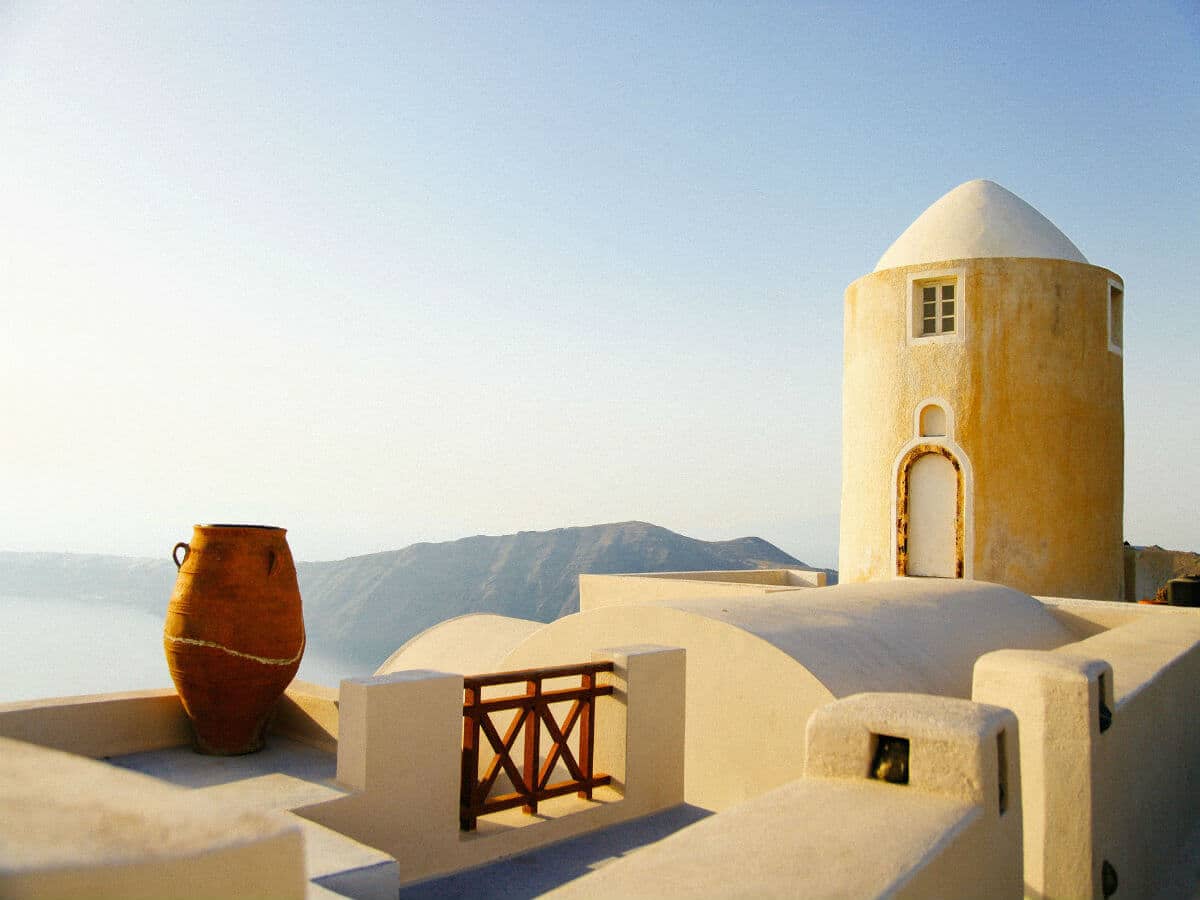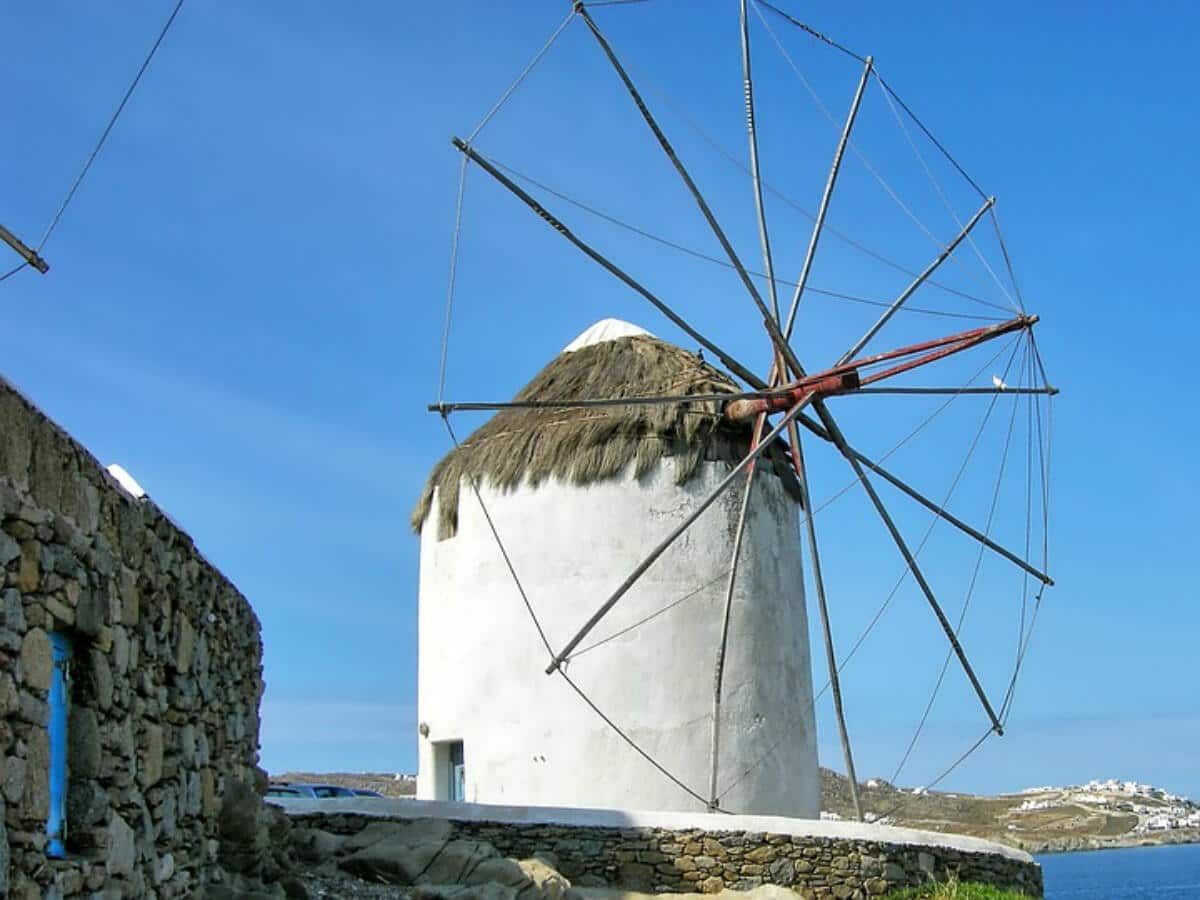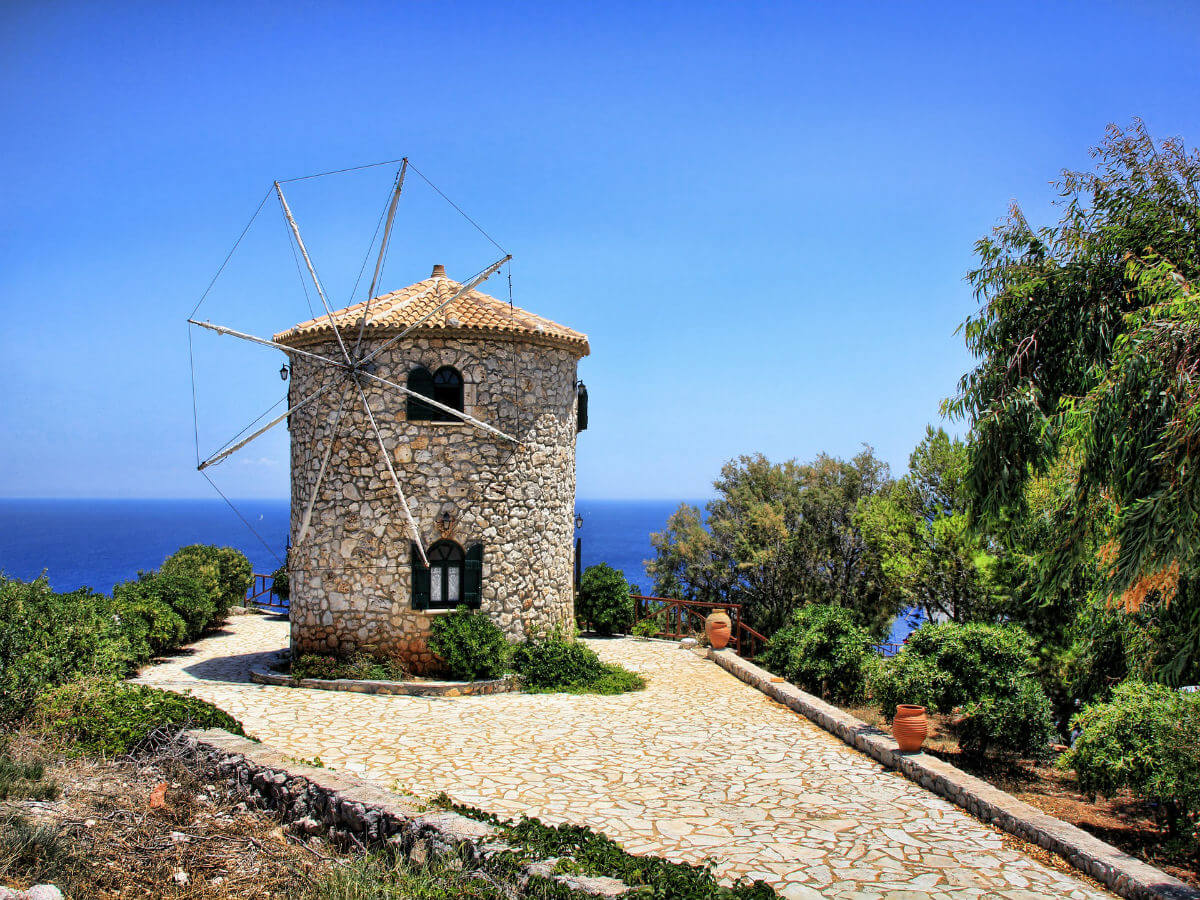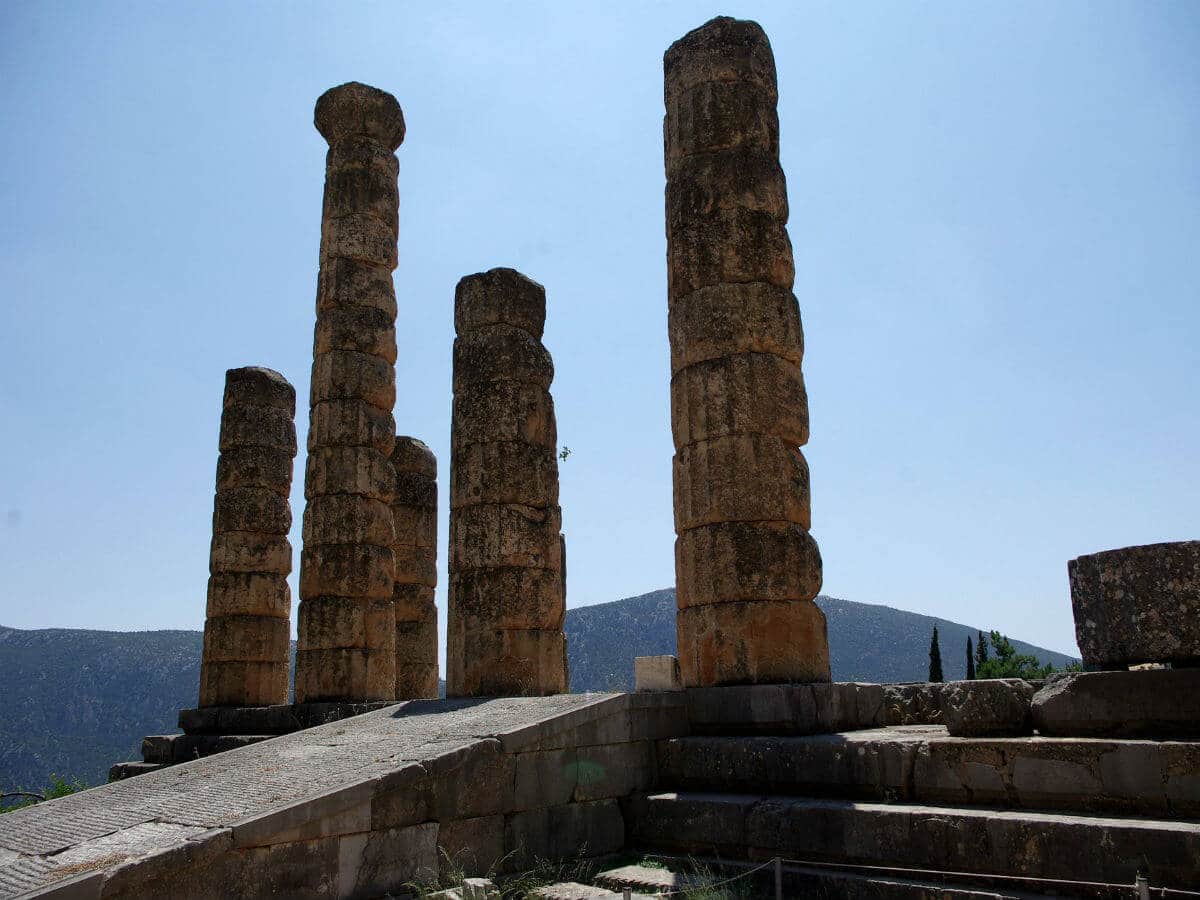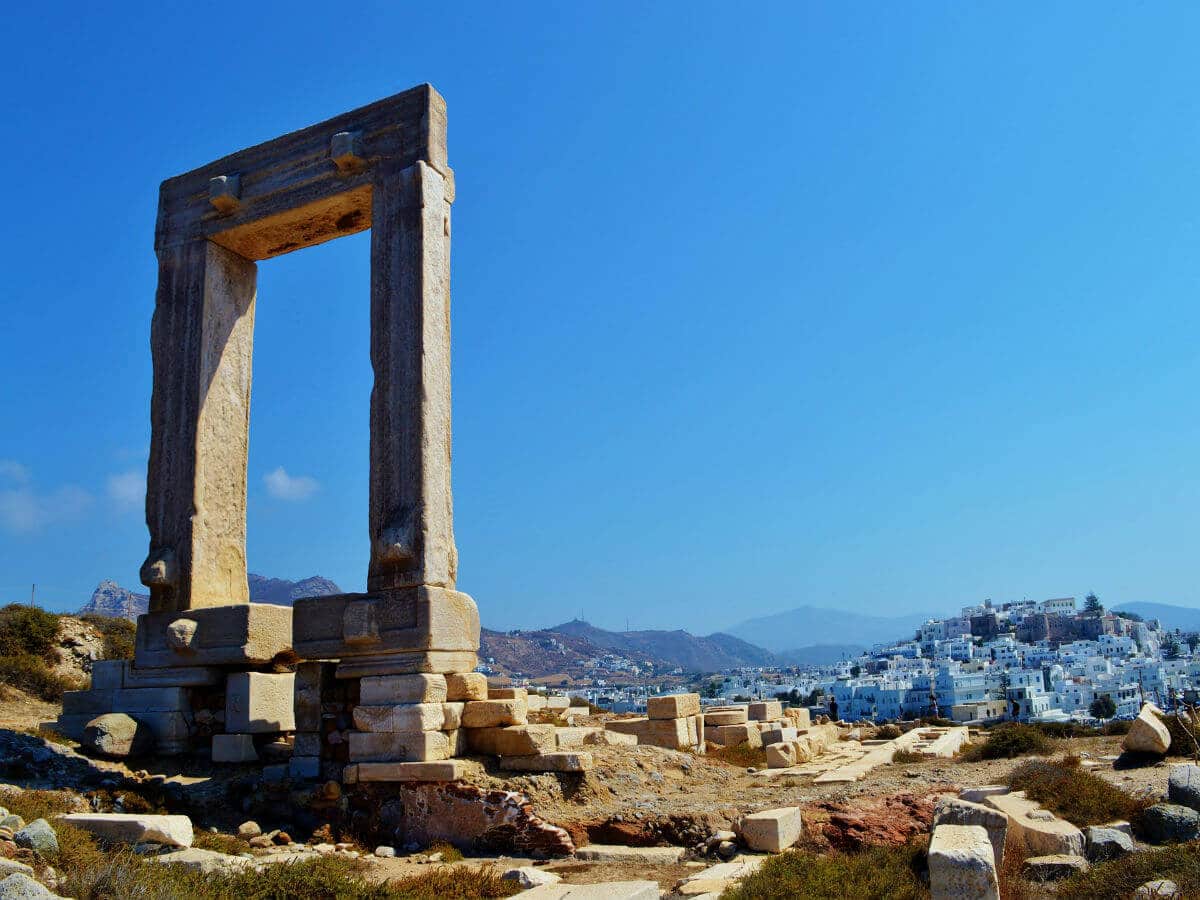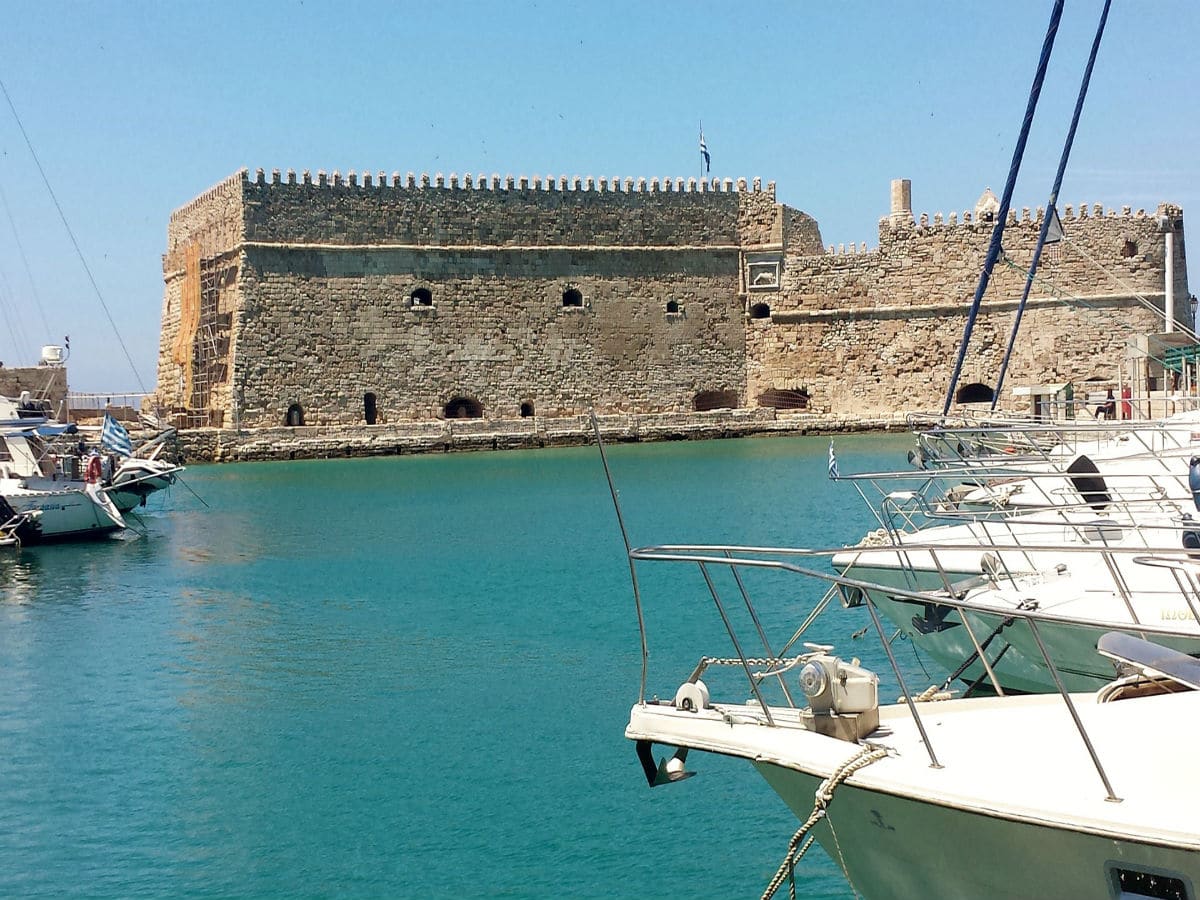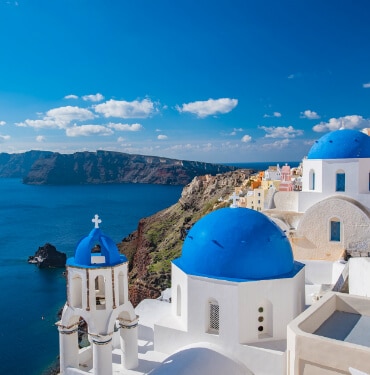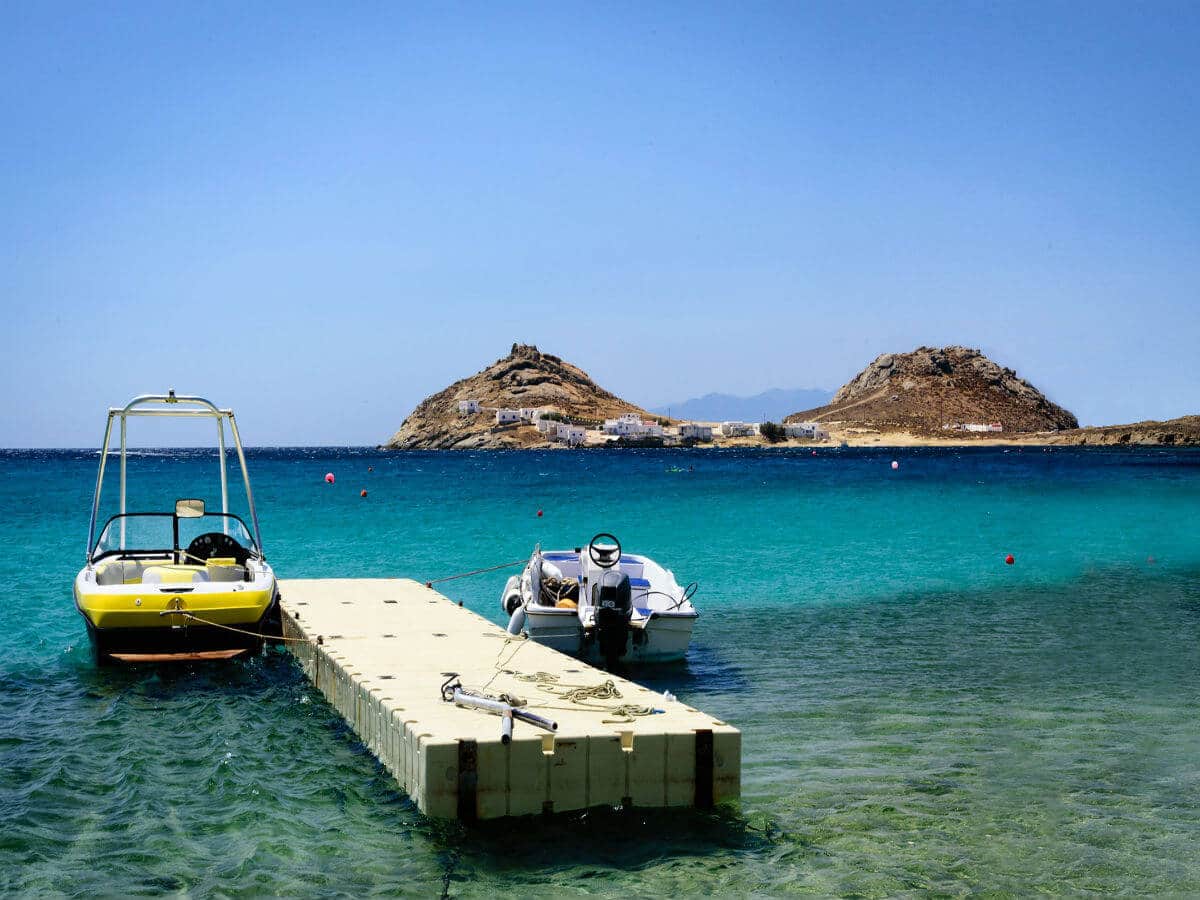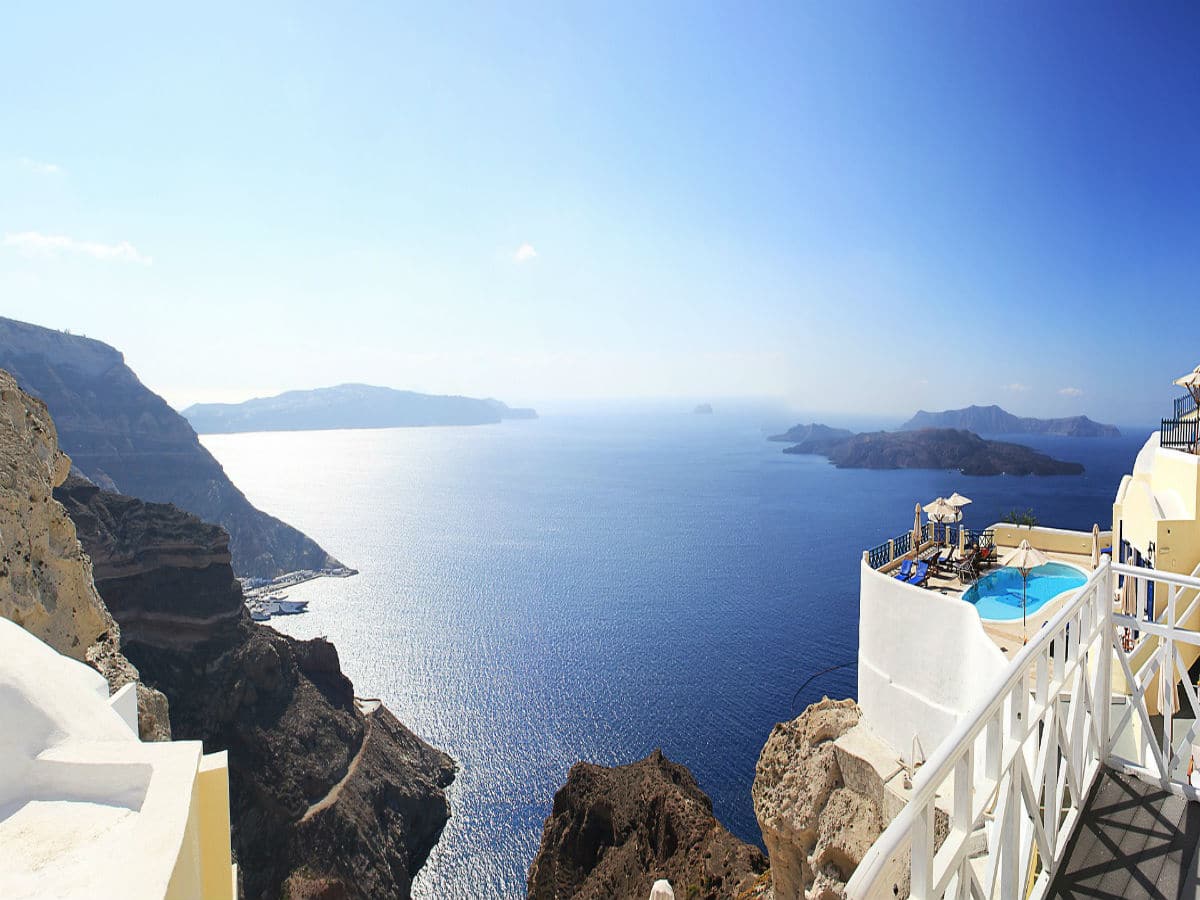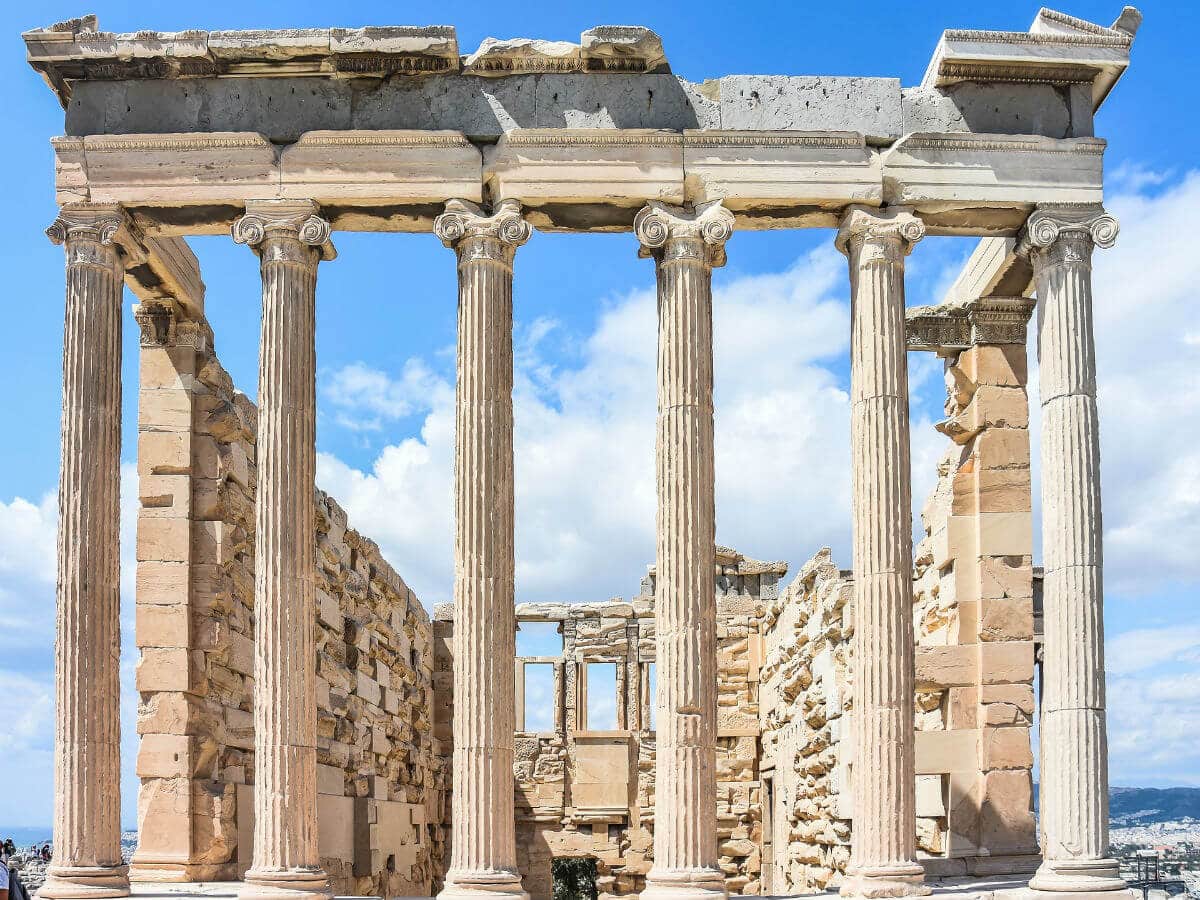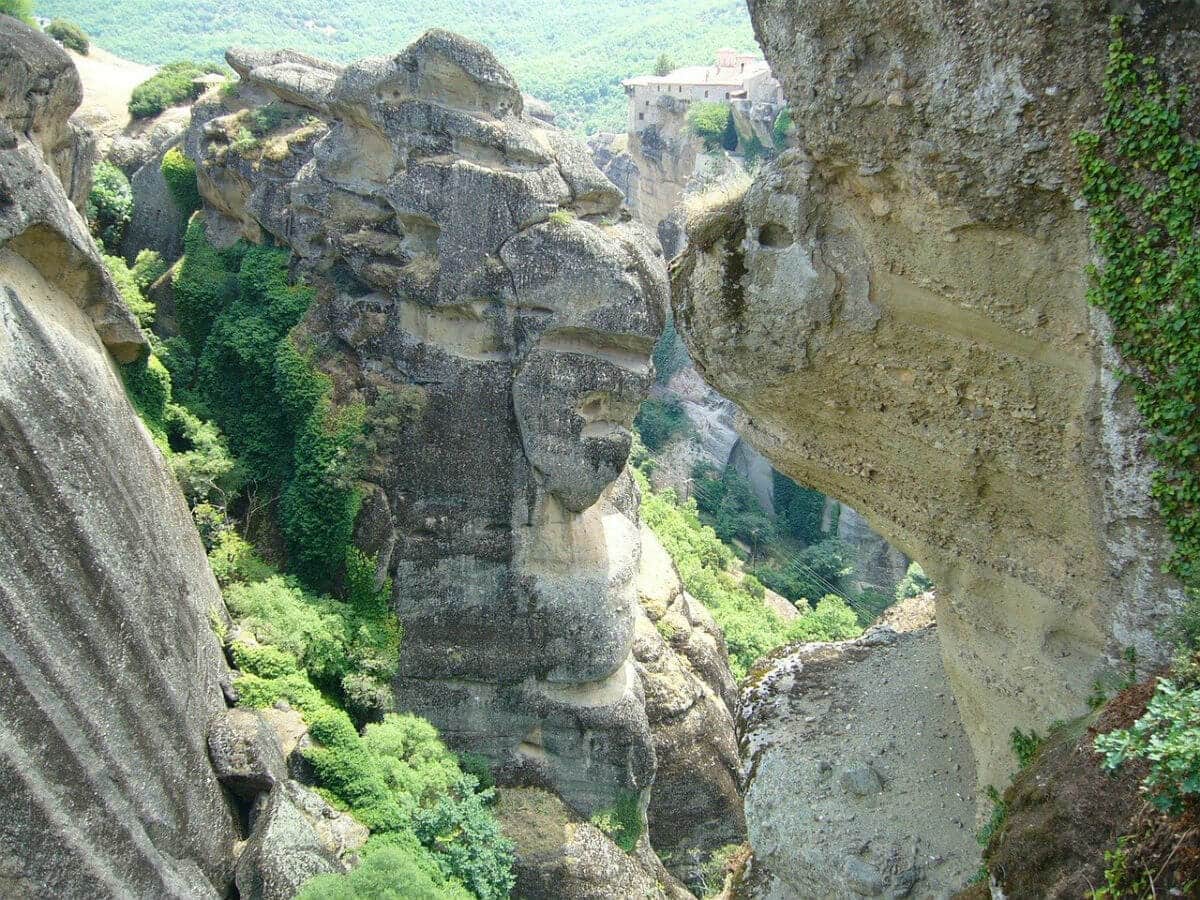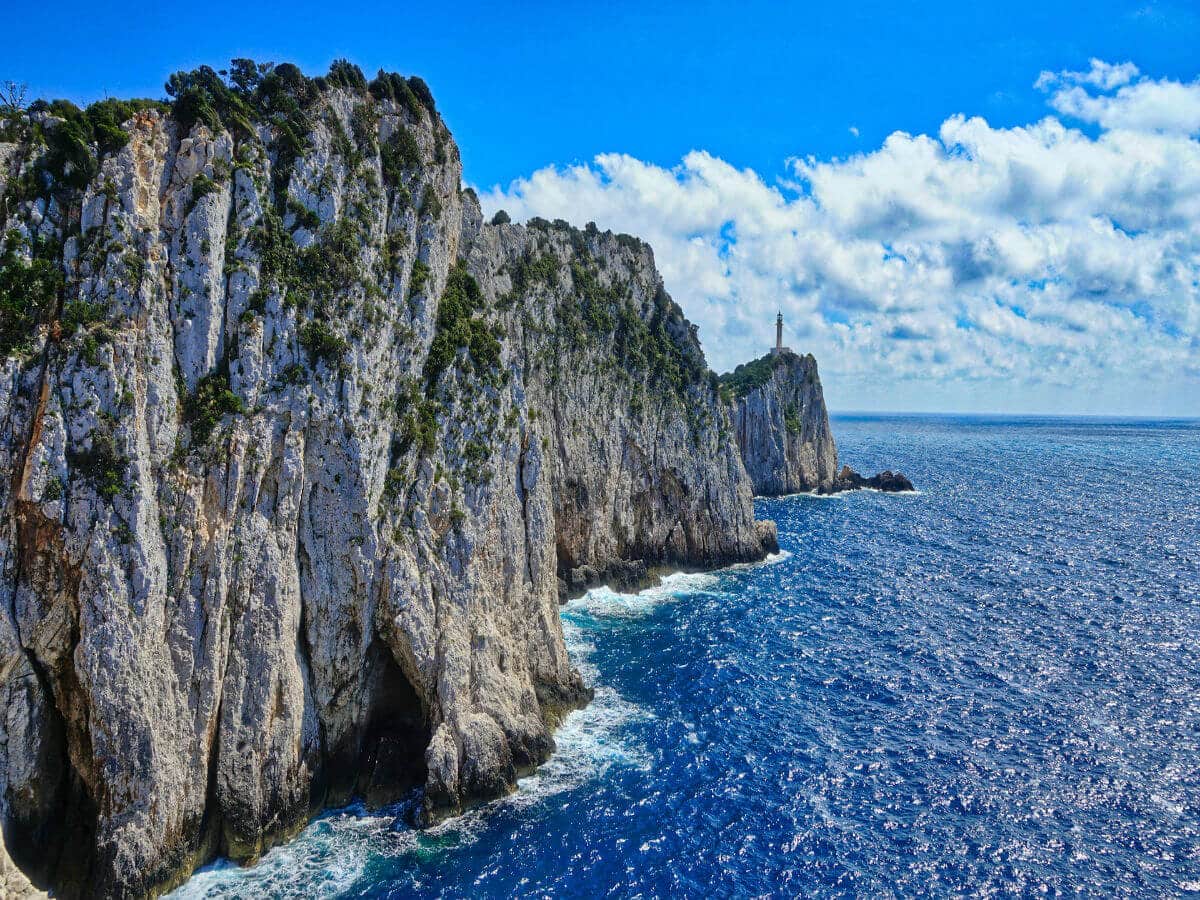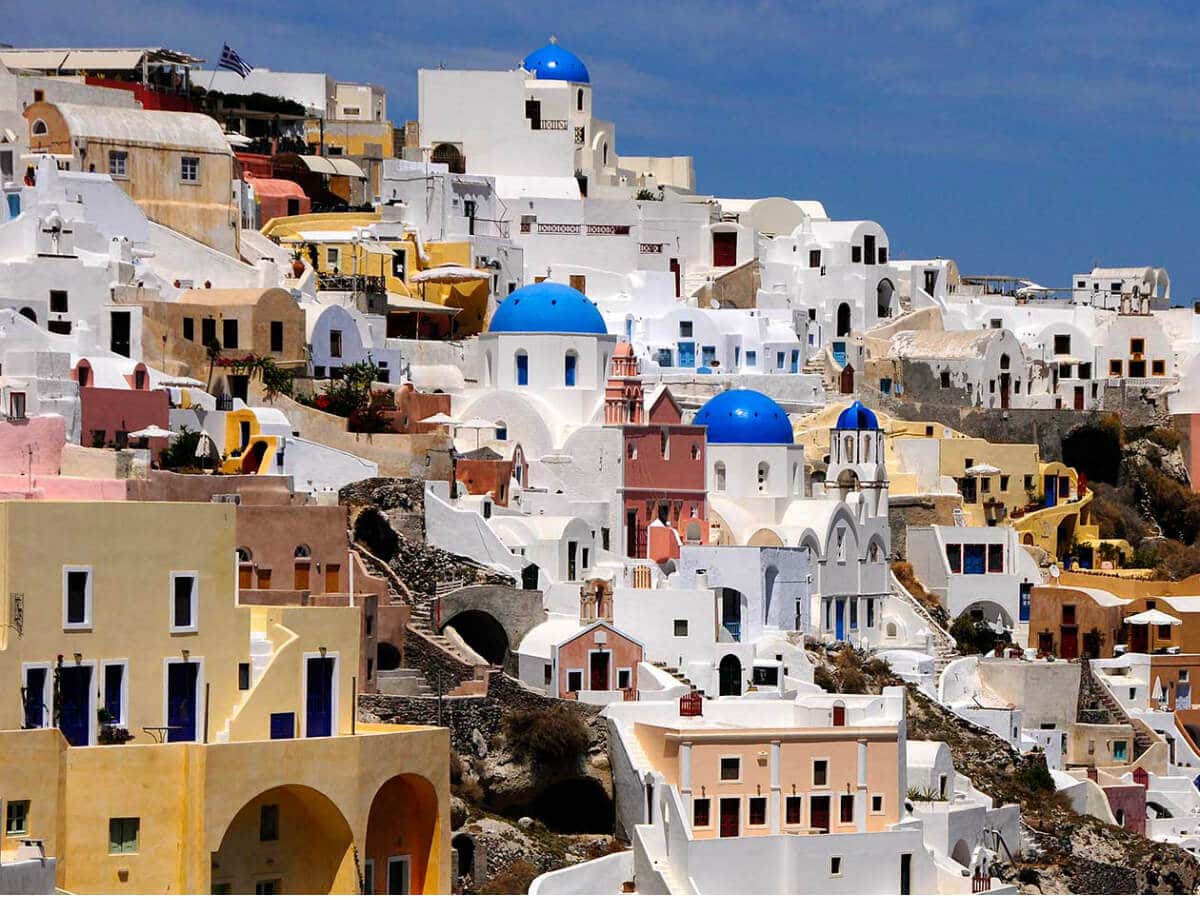Tour Packages
Greece Tour Packages
SUPER DEAL PRICE
STARTS FROM
per person on twin sharing

ATMs are common in cities, but less so rurally.

Credit cards are widely accepted throughout Greece.

Finding a bank in Greece is generally easy.

The legal drinking age in Greece is 18.

Greeks are well-known for their warm hospitality.
Greece - Visitors Statistics

Annually
3,20,00,000
Male51%
Female49%
By Purpose
Couples
For Newlywed Vacations
Family
For Family Vacations
Top Visitors from India
Mumbai
Delhi
Bengaluru
Chennai
Hyderabad
Kolkata
Pune
Ahmedabad
Jaipur
Lucknow
Everything You Need to Know About Greece
Greece must be on your list if you dream of travelling to a picture perfect postcard-worthy destination. This beautiful Mediterranean country draws tourists from across the globe with its mountainous landscapes, breathtakingly beautiful islands, sandy beaches, and sumptuous food. Check out our affordable Greece tour packages if you plan to explore the Hellenic Republic.
Greece’s beauty remains unparalleled, with its combination of tall mountains and a glittering coastline. Enjoy the country’s soft pace, relish the incomparable hospitality of the locals, and take a break from the busy lives we’re otherwise accustomed to. So, turn your relaxed mode on and drink in Greece’s simple pleasures.
While cities like Santorini and Mykonos offer dazzling nightlife, Athens and Crete are famous for their historic architecture. If you’d like to explore Greece’s cultural history, check Corfu and Thessaloniki.
About Greece
As the birthplace of democracy and the source of some of the greatest literature, architecture, and philosophy, we owe a lot to Greece. While people have inhabited parts of Greece since the Palaeolithic, it was not until 1700 BCE that the first Greek civilisation, viz., the Mycenaean Civilization, was established. Classic Greek civilisation as we know it today was established much later, around 1200 BCE. It was at its peak from 500 BC to 300 BC when the ancient Athenians created the concept of democracy, and the civilisation flourished in art, literature, philosophy, sports, and drama. Sadly, this great civilisation ended when the Greek peninsula fell to the Romans in 146 BC.
Greece is a Mediterranean country in Southeast Europe on the Balkan Peninsula. It shares borders with Albania, Bulgaria, North Macedonia, and Turkey. The country is surrounded by the Aegean Sea in the east, the Mediterranean Sea in the south and the Ionian Sea in the West. As with other Mediterranean countries, Greece enjoys mild winters and plenty of sunshine. However, the central and northern regions can be hot and dry.
Greece is home to over 18 UNESCO World Heritage sites ranging from the Temple of Apollo and the Acropolis to the Temple of Zeus in Athens. But the country is equally famous for stunning islands like Mykonos and Santorini, and natural wonders like the Blue Caves of Zakynthos and the Melissani Lake Cave. Check out our Greece tour packages to explore the country’s top attractions.
Tidbits
- Greece comprises over 6000 islands and inlets, of which only 200 are inhabited.
- Greece has 18 UNESCO World Heritage Sites, including the Acropolis and the Temple of Apollo.
- 80% of the country’s landscape is made up of mountains.
- The number of tourists visiting Greece every year is thrice its population.
- Greece has over 110 archaeological museums, including the Acropolis Museum and the National Archaeological Museum in Athens.
- The word democracy comes from the Greek words demos (people) and rule (kratos).
- Greek is one of the oldest languages that’s still in use today.
- Marathon was first invented in Greece when a Greek ran 26 miles from Marathon to Athens.
- Greece’s currency, Drachma, is the oldest in the world.
- The Greeks invented theatre in around 440 BC.
Essential Tips To Know Before Travelling To Greece
- Greece offers Indians a Schengen visa, valid for up to 90 days.
- Don’t be tempted by budget Greece tour packages around winter—most restaurants, clubs, and shops remain closed during these months.
- However, some cities like Athens are open all year round and perfect for winter vacations.
- Pay credit cards for larger purchases and cash for smaller amounts.
- Keep smaller Euro bills (up to €10) to pay for small items (bottled water, trinkets, etc.) or offer tips.
- Carry enough sunscreen – Indian tourists often underestimate Greek summers.
- Some places can get cold at night, even during summer – remember to carry a light jacket or cardigan.
- Carry a few large-sized reusable tote bags to avoid being charged for carry bags.
- Pack flip-flops, sunglasses, & a beach towel if you plan to visit the beach.
- Meat products are prohibited within Greece – unless you need them for medicinal purposes.
- Carry a Type C travel adapter and a voltage converter.
- Pickpocketing is common in popular tourist places – keep your valuables close.
- Greeks may come across as flippant at first, but when you get to know them, they’re warm and friendly.
- Don’t be surprised by Greeks talking loudly and animatedly. They are not rude; rather, it’s just the way they speak.
- Greeks hate people who disrespect their ancient artefacts and relics. Be respectful when visiting ancient monuments.
- Don’t enter into restaurants that don’t have a set menu with a price list.
- You’ll be asked not to flush toilet paper. Greek plumbing pipes are old and narrow, causing blockages.
- While Greeks welcome tourists, they hate people who get drunk and misbehave. If you’re drinking, remember to hold it, especially in public areas.
- Don’t talk about North Macedonia or Turkey to Greeks, especially the latter. Turkey and Greece have a long-standing rivalry.
Our Best Greece Tour Packages
| Greece Tour Packages | Duration | Highlights |
| Athens Greece Tour Package | 6 Nights 7 Days | Piraeus Harbour, Kalafati Beach, Temple of Olympian Zeus. |
| Athens Tour Package Itinerary | 4 Nights 5 Days | Temple of Athena Nike, Knossos Palace, Acropolis Museum. |
| Athena Holiday Package Itinerary | 3 Nights 4 Days | Acropolis Museum, Temple of Olympian Zeus, Temple of Athena Nike. |
| Greece Tour Package For Couples | 4 Nights 5 Days | Acropolis Museum, Temple of Olympian Zeus, Temple of Athena Nike. |
Greece At A Glance
| Category | Details |
| Country | The Hellenic Republic |
| Capital | Athens |
| Language(s) | Greek (O), Slav-Macedonian(Un), Albanian (Un) |
| Currency | Euro (EUR) |
| Calling Code | +30 |
| Driving Side | Right-Hand Driving |
| High Season | July to August |
| Iconic Attractions | Temple of Apollo, Acropolis, Santorini, Mykonos, Parthenon |
| Visa | Schengen Visa for 90 days |
| National Animal | The Dolphin |
| National Flower | Bear’s Breech |
| National Food | Plov |
Top Reasons To Visit Greece
Stunning Islands And Beaches
The sandy beaches, crystal blue waters, and eclectic collection of islands will ensure you never forget your Grecian holiday. With over 6000 islands and inlets, we’re sure you can explore new places with every Greek tour package. While Mykonos and Corfu are famous for their nightlife and party scene, Santorini is loved for its whitewashed houses and towering cliffs.
But if you’d like to avoid the crowds, check the lesser known islands of Folegandros, Koufonisia, and Andros. To explore Greece’s picture perfect scenery and unspoiled beaches, check out our Greece tour packages.
Delicious Food
Greece is every food lover’s dream, with fresh seasonal vegetables, great seafood, wine, and high-quality olive oil. Greek cuisine is rich and varied, with flavours varying from season to season and geography. Their food is probably the secret to the long lives of the Greeks. The traditional Greek diet is based on legumes, whole grains, beans, cheese, fruits, herbs, and lean meats like lamb and veal. Horiatiki is healthy and sumptuous and a popular Greek salad made using the season’s best cucumbers, onions, tomatoes, olives, and feta cheese. To explore the country’s food culture, remember to include a Greek food tour in your Greece tour package itinerary.
Natural Landscapes
Besides beaches and archaeological sites, people visit Greece to explore its stunning landscapes. From underground lakes and mountain peaks to national parks, there’s so much to see and experience. For instance, Meteora is famous for its monasteries perched atop mountains. Don’t miss the Blue Caves on the Ionian island of Zakynthos. The volcanic island of Nisyros is famous for its beautiful crater, also known as Stefanos. Check out our Greece tour package to explore the many beautiful landscapes there.
Rich History And Architecture
Whether you’re a history lover or not, Greece’s ancient civilisation and breathtaking archaeological sites will surely charm you. Home to over 18 UNESCO World Heritage Sites, the country is a favourite among history and philosophy lovers. The oldest Greek ruins are believed to be from the Neolithic age, dating back to 6000 BC.
Another famous ancient Greek ruin, the Acropolis, was built in the 13th century BC and has stood strong for over 3,500 years. The Temple of Apollo was built at the height of the Greek civilisation around 420 BC.
Vibrant Nightlife
Greece is the party capital of Europe thanks to islands like Mykonos and Corfu, with bars and clubs open all night. The iconic Paradise Beach is known for its wild parties and trendy bars with non-stop music and plenty of cocktails. The Laganas Beach on Zante Island is home to several bars, clubs, and world-famous DJs. Don’t miss Corfu if you want some crazy party action.
Best Time To Visit Greece
Greece has four seasons: spring, summer, autumn, and winter. But being a Mediterranean country, its winters aren’t as harsh as those of neighbouring Bulgaria and Albania. Yes, it does snow in Greece, but in the north. Peak tourist season in Greece ranges from July to August when popular tourist areas are flooded with tourists. If you plan to visit the country during summer, make sure you book a Greece tour package well in advance, as most hotel rooms and flights are booked.
November to March is the low season, with most restaurants and shops closed in beach destinations like Mykonos and Santorini. However, places like Athens are year round destinations, as most shops and restaurants are open. In fact, most archaeological sites and museums are half-price during winter. They’re also free every first Sunday of each month from November to March. Also, if you’d like an unobstructed panoramic view of Santorini, winter is the best time, as it’s almost empty.
Spring In Greece (April To June)
Spring temperatures in Greece range from 15°C to 22°C, although temperatures vary depending on the region. For instance, the temperature in the southern islands remains between 12°C and 20 °C. The northern islands have slightly milder weather at this time, with the temperature fluctuating between 5°C and 25°C.
Apart from a few regions in the north, the weather in Greece is sunny and warm at this time. You don’t have to worry about the rain bothering you during the spring either, except in the mountainous areas where there could be thunderstorms.
In addition to the pleasant weather, spring brings fewer crowds to the country, allowing you to visit all the sightseeing spots.
Summer In Greece (July To August)
While the temperature in the centre-south region of Greece remains between 21°C to 33° C, the temperature in the north ranges between 15°C to 32°C, summers in Greece are pretty hot and humid, with occasional rainfall. The heat combines well with the pleasant sea breeze on the islands and coastal regions.
Summer is the peak tourist season in Greece. Most tourist spots will be crowded. But it’s also a great time to enjoy the country’s many festivals, including the Athens Epidaurus Festival and Easter.
Be it international film festivals or music festivals, Greece’s traditions are vivid during summertime. To stay protected from the heat, wear hats, apply sunscreen, stay hydrated, and wear light clothes.
Autumn In Greece (September To October)
Once autumn embraces Greece, the temperature remains between 8°C and 27°C in the north and 15°C and 29°C in the southern region. While it does stay a bit hot until the middle of September, the weather takes a turn for the better in October.
There is also quite a bit of rain in October, which helps bring the temperature down. Autumn is when the weather in Greece is ideal for most people, especially if you’re hoping to get some respite after the scorching summers in India. There are very few tourists around, and an abundance of art, film, and music festivals fill the country.
Make sure to book in advance if you’re hoping to catch some of the cultural festivals in Greece during this period. Do remember to pack hiking boots if you wish to go trekking. Carry an umbrella and some rain gear to stay prepared for rainfall during your autumnal vacation. Dressing in layers and carrying a jacket is recommended at this time.
Winter In Greece (November To March)
The northern area of Greece experiences colder winters than the southern region. While the former remains between -3°C and 15°C, the latter ranges from 7°C to 20°C. The cold weather, coupled with heavy rains, makes the atmosphere quite chilly in Greece during the winter season.
The low temperatures probably contribute to the lack of tourists at this time. Most of the islands, along with some of the resorts and restaurants, remain closed during this period. If cold and wet weather is not your idea of fun, then you may want to avoid Greece at this time.
Top Things To Do In Greece
Greece is heaven for history lovers. However, it is much more than its temples, archaeological sites, and ancient civilisations. Not only does the country have an exciting potpourri of sightseeing opportunities, but it also offers tourists the opportunity to partake in thrilling outdoor adventures, all of which you can witness through our Greece tour packages.
Things To Do As A Family
Acropolis Museum
The Acropolis Museum in Athens is an archaeological museum based on the findings associated with the Acropolis. It was constructed to display all the artefacts discovered on the rock and the surrounding slopes, starting from the Greek Bronze Age to the Roman and Byzantine eras of Greece. Founded in 2003, it was opened to the public in June 2009.
The museum covers an area of 14,000 square metres and has over 4,250 objects on display. This famous sightseeing spot is on the southeastern slope of the Acropolis Hill.
Temple of Olympian Zeus
The Temple of Olympian Zeus, also known as the Olympieion or Columns of the Olympian Zeus, is situated in the centre of Athens. It is dedicated to Zeus, an Olympian and the head of the Olympian gods. Construction began in the 6th century BC but did not end until the 2nd century AD, thereby taking about 638 years when the project was initiated.
The temple’s glory did not last long. It fell into ruins following a barbarian invasion in 267 AD, during which it was pillaged.
Temple of Athena Nike
The Temple of Athena Nike is located on the Acropolis and was built around 420 BC to honour the goddesses Athena and Nike. It was one of the first fully Ionic temples in the Acropolis.
The Greeks worshipped Athena and Nike because they hoped the lengthy Peloponnesian War would bring about a favourable outcome, helping Greece achieve victory over the Spartans and their allies. In Greek mythology, Athena is the goddess of war, practical reason, and handicraft, and Nike is the goddess of victory.
Knossos Palace
The origin of the Knossos Palace can be traced back to the Neolithic era, and it was during the Minoan period that the structure reached its maximum development. Not only is the palace a symbol of royalty, but it also stands as an example of culture, trade, and administration.
Several in house workshops were held on these grounds back in the day, which led to the creation of fashioned items that were exported across the Mediterranean. Knossos stands as a significant archaeological site in Europe due to the combination of cultural, political, and economic factors.
National Archaeological Museum
The National Archaeological Museum is housed in Athens. It is regarded as one of the world’s greatest museums and is home to the richest collection of antique Greek artefacts.
Situated in central Athens, this museum displays objects related to Greece from the prehistoric era. It was founded towards the end of the 19th century, and its initial name was The Central Museum. The museum was renamed in 1881 in the presence of Charilaos Trikoupis, the Prime Minister of Greece at the time. Valerios Stais became the curator of the museum in 1887.
Metropolitan Cathedral of Athens
The Metropolitan Cathedral of the Annunciation is commonly referred to as the Metropolis. It is a major landmark in Greece and is dedicated to the Annunciation of the Virgin Mary, which is why it’s also recognised as the Metropolitan Cathedral of the Annunciation.
The construction of the church ended in 1862. Following its establishment, various important ceremonies were conducted at this church, including weddings, funerals, and the christening of royals. The earthquakes in 1982 and 1999 severely damaged the structure, and it was subsequently closed for renovation until it was restored in 2009. Services were resumed in 2016.
Theopetra Cave
Theopetra Cave is situated in Theopetra village in the region of Thessaly in Greece. Archaeological excavations have taken place for several years, and it has been found that human beings occupied the cave for about 130,000 years.
The cave also displays proof of human habitation from the Middle Paleolithic to the end of the Neolithic period. This discovery is vital as it allows archaeologists to gain a deeper insight into the prehistoric period in Greece. Due to the huge entrance of the cave, ample light reaches the insides of the structure. According to geologists, the limestone hill on which the cave is situated was formed between 137 and 65 million years ago.
Things To Do For Adventure Lovers
- Mountaineering
- Kitesurfing
- Windsurfing
- Skiing
- Snorkelling
- White water rafting
- Rock climbing
- Bungee jumping
- Kayaking
- Sailing
Food In Greece
Greek cuisine is also one of the healthiest in the world, with an emphasis on fresh and natural ingredients, including fruits and vegetables, whole grains, fish, cheese, yoghurt, and olive oil. Greek food is primarily baked rather than fried and seasoned with herbs, oils, and citrus fruits. Greece is a great place for vegetarians as almost 70% of the cuisine is plant and dairy-based. Non-vegetarian protein sources include beans and legumes such as fava beans, split peas, and lentils used in soups, stews, and salads. Some common foods you’ll try during your Greek tour package include:
Moussaka
Moussaka is a famous Greek dish, it is healthy and hearty. Eggplants and tomatoes form the central part of moussaka. Meat is also added, either lamb or beef. Béchamel sauce is the usual topping. There are vegetarian versions as well, made without adding meat.
Gyros
While you may have tasted gyro, the best place to try an authentic one is at one of the street stalls in Greece. This handheld pita-based sandwich includes a variety of meats, including pork, chicken, lamb, and beef. It also includes veggies such as lettuce, tomatoes, cucumbers, onions, and fried potatoes and is topped with tzatziki sauce.
Greek Salad
Horiatiki is a popular Greek salad made using fresh vegetables, including cucumbers, tomatoes, Kalamata olives, red onions, and feta cheese. Unlike in the rest of the world, where people use lettuce, Greeks use capers. The dish is inspired by the summer meal salads of the peasants, who used basic ingredients like feta cheese, tomatoes, and onions and flavoured them with dried herbs and olive oil. While its origin is peasant-based, it’s been jazzed to create an exotic and creative salad served in Mykonos and Santorini.
Instead, they make use of capers. Most meals in Greece aren’t complete without this salad. Also, be ready to see the salad being served in huge portions.
Saganaki
When talking about Greek cuisine, we should know that saganaki, as a term, refers to any dish that is cooked in a small frying pan. It comes from a Turkish word which means ‘copper dish’. Essentially, saganaki is fried cheese. Sturdy cheese is first gathered, which could be of any kind. It is then dipped in flour and then fried till the edges turn crispy brown. These slices of fried cheese are consumed in different forms. While some have it plain, some drizzle it with honey and nuts.
Dolmades
Dolmades is a dish which feels like an explosion of deliciousness in a compact size. Vine or grape leaves are the foundation of dolmades. These leaves are then stuffed with rice, herbs, and vegetables, and the non-vegetarian versions also contain minced meat.
Souvlaki
Souvlaki is often confused with gyros, but the two are different dishes packing their blend of flavours. It’s one of those Greek foods available everywhere and can be munched on at any time of the day.
The dish is a wrap made from marinated meat, such as lamb, beef, chicken, or pork. The meat is grilled on a skewer and placed over a salad or warm pita bread. It can also be served with French fries, generously smothered with tzatziki sauce.
Loukoumades
We couldn’t wrap up this list without including something sweet, especially when the sweet dish is as spectacular as loukoumades. Think of these as the Greek version of mini doughnuts. Having a fried and crispy exterior, the interior of these doughnuts is deliciously fluffy and light. They are drizzled with honey and cinnamon, multiplying their sweetness.
Tzatziki
Tzatziki is a yoghurt dip made with shredded cucumber, olive oil, garlic, lemon juice, salt, lemon juice, and herbs. It is paired with all kinds of proteins and is a classic addition to gyros and souvlaki. It helps digest the grilled meat easily.
Tomatokeftedes
Tomatokeftedes, or green tomato fritters, are an ancient dish found in Greece, particularly in Syros and Santorini. The dish combines tomatoes, onions, feta cheese, herbs, flour, and breadcrumbs. You will often come across tourists having these appetisers at Greek’s local street markets.
The fritters are usually accompanied by freshly squeezed lemon juice or tzatziki sauce, both of which accentuate the dish’s juiciness. They are a perfect example of how Greek cuisine combines simplicity with vibrancy.
Shopping In Greece
Greece gives you much more than photographs to take home from your vacation. Read on to discover the items you must shop for in Greece and some of the best places to shop in the country.
What To Buy
Greek Coffee
Greek coffee is roasted to a specific temperature before being ground to a fine powder. Unlike elsewhere in the world, Greek coffee is boiled and not brewed, giving it a rich and creamy flavour. Boiling also helps reduce caffeine and preserves polyphenols and other antioxidants present in the beverage.
Coffee is an integral part of Greece’s culture, and the Greeks believe that coffee is meant to be sipped carefully and slowly.
Greek Honey
Honey was an integral food for ancient Greeks, who used it for preservation and even as medicine. Greeks referred to honey as ambrosia or the food of the gods. Greek honey is special because it is sourced from the country’s diverse plant species, 850 of which are endemic to the country. That is why some types of honey are found only in Greece and nowhere else in the world, including pine honey and fir honey – the bees feed from the microorganisms that live on the pine and fir trees and not from the actual tree.
Greek Wine
With more than 300 grape varieties native to Greece, it’s only natural for Greek wine to be on the list of must-buy Greek souvenirs. Thousands of travellers visit the country yearly to taste its wine, tour the wineries, and carry some delicious wine back home.
Leather Items
Greek leather goods are known for their durability and fine craftsmanship. However, we suggest you buy from verified shops to ensure reasonable prices and quality products. Fine leather shops can be found in almost every town in Greece, and make sure to browse through the handbags, wallets, sandals, and passport holders created by talented leatherworkers.
Hand-painted Ceramics
Athens was the birthplace of some of the most crucial art movements, which can be seen in the ceramics found in the homes of various Greek citizens. Be it art pieces or plates containing bright blue shades, hand-painted ceramics are beloved souvenirs from Greece.
Evil Eye Ornaments
The Greeks believe that carrying an evil eye talisman can protect you from bad spirits. You can also buy them as earrings and necklaces. The eyes in these evil eye ornaments are usually light blue or dark blue, which signifies protection, relaxation, and good karma.
Where To Shop
- Athens Central Market: For olives, feta cheese, spices, and teas.
- Monastiraki Square: For local spices and foods, apparel, antiques, vinyl records, and books.
- Kolonaki District: For shoes and clothes.
- Avysinias Square: For jewellery, ceramics, silverware, pottery, and glassware.
- Exarchia: For perfumes, bags, shoes, clothes, musical instruments, comic books, and records.
- Ermou Street: For jewellery, silverware, and antiques.
- Piraeus Flea Market: For clothing, bedsheets, and footwear.
Things To Remember When Shopping In Greece
- Small shops and restaurants don’t open until 9 am and are closed during the afternoon as people like to enjoy an afternoon siesta. This isn’t the norm, however.
- Working hours are shorter on Mondays, Wednesdays, Fridays and Saturdays.
- They’re also closed on national holidays and festive days like Easter and Christmas.
- Many stores remain closed on Sundays, except pharmacies, liquor stores, and pastry shops.
- Almost everything is on sale twice a year, usually from January to February and again from August to September.
- Haggling isn’t appreciated in Greece – don’t bargain unless you make a large purchase.
- Most small shops accept cash to avoid card payment charges, although cards are accepted at supermarkets, boutiques, and malls.
Art And Culture In Greece
Art
Ancient Greek art was a means of honouring the gods, created in the image of humans. It has also influenced art movements in history, viz., Renaissance, Baroque, Neoclassical, and even modern art. Some famous Greek artworks include the Mask of Agamemnon, the Elgin Marbles, The Pergamon Altar, and the Marble Metope from the Parthenon. Sadly, not all of these are now in Greece.
Dances
Greek celebrations are incomplete without traditional dances. Whether for weddings or religious functions, people gather in pairs or circles and perform songs and dances that praise the community and the place. The Kalamatianos is the most famous Greek dance, along with Sirtaki, Tsamiko, and Ballos.
Sports
Football is Greece’s national sport, and basketball’s popularity amplified during the 1980s. Greece’s national basketball team even went on to win the European championship in 1987. In 1994, the national football team made it to the finals of the World Cup for the first time and brought the trophy for the European Championship home in 2004. Other popular activities in the country are mountain sports, such as hiking, skiing, and climbing.
View All Greece Tour Packages
Travel Tips

Visa Information
Check visa requirements before traveling, ensuring a smooth entry and compliance with destination regulations.

Health and Safety Tips
Prioritize health, stay hydrated, follow safety guidelines, and maintain personal hygiene for a secure journey.

Currency and Tipping
Familiarize with local currency, consider customary tipping practices for respectful and seamless travel experiences.
Book Your Dream Vacay Today!







